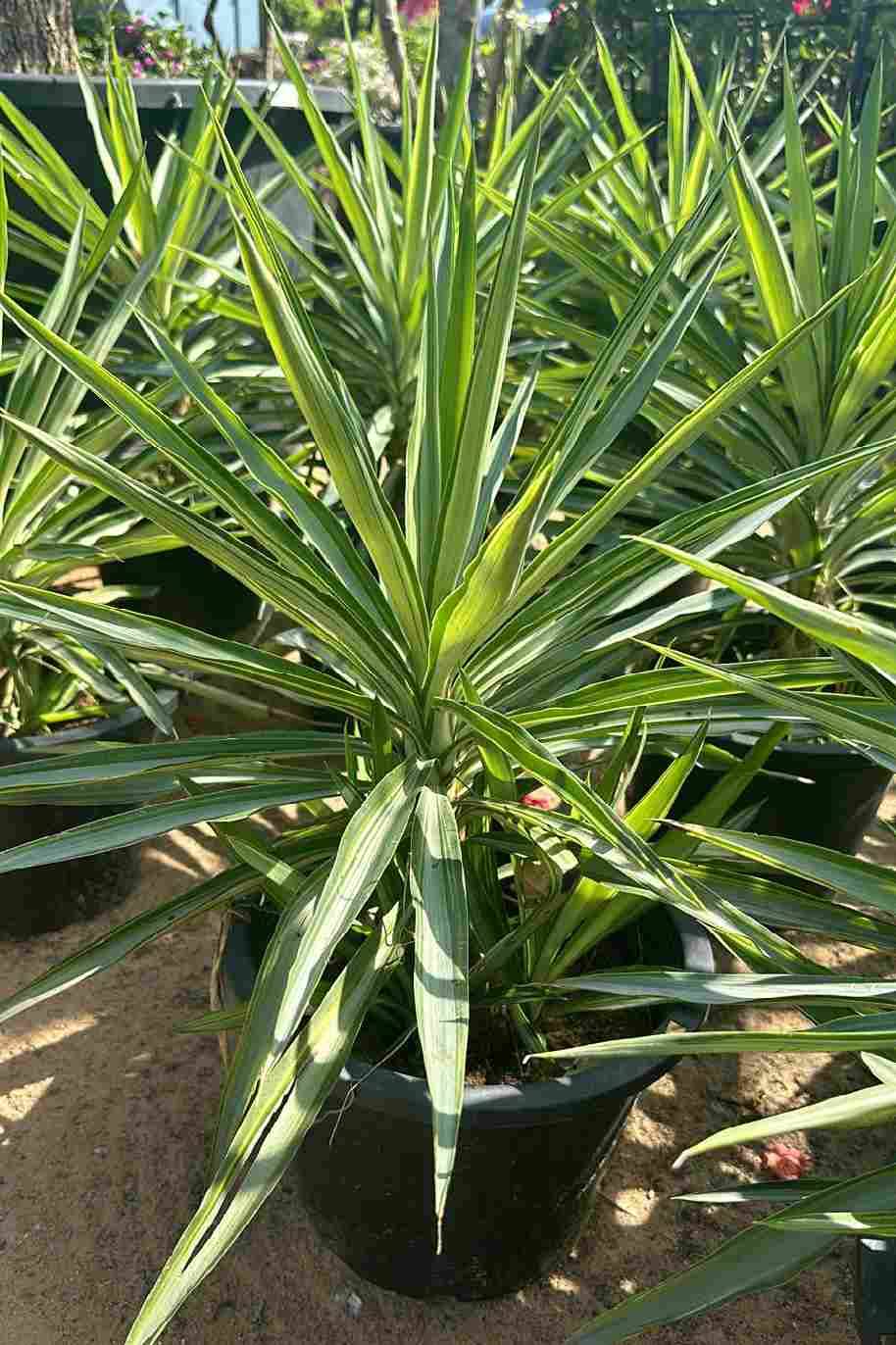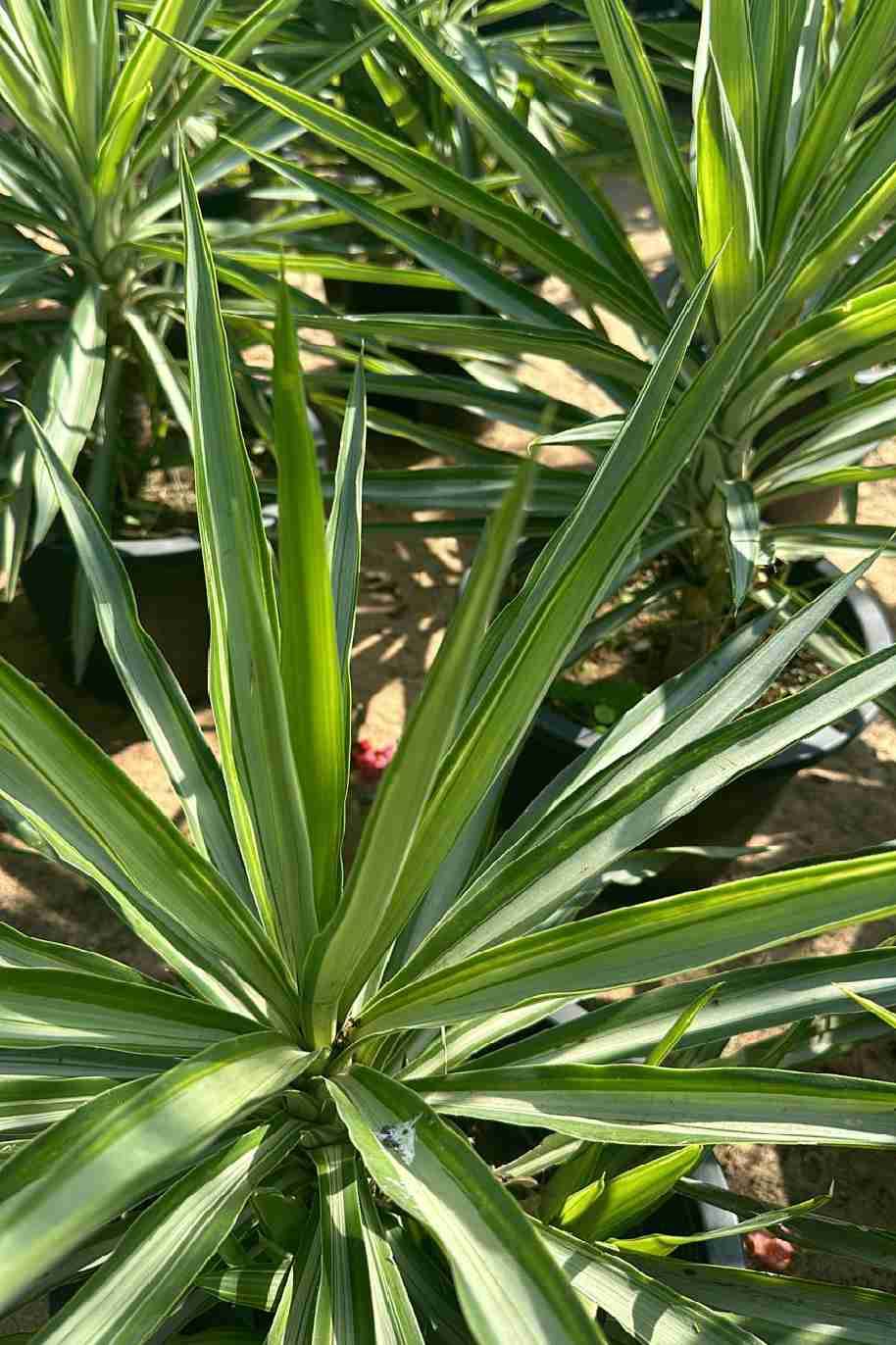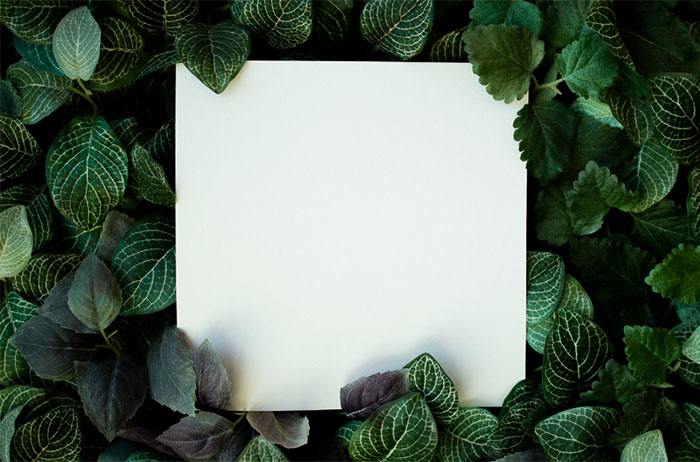Plant Bio
Yucca is a genus of perennial plants native to hot and arid regions of North and Central America. These versatile plants are known for their striking architectural forms, sword-shaped leaves, and dramatic flower spikes. Yuccas are valued for their resilience, drought tolerance, and low-maintenance nature, making them popular choices for outdoor landscapes and gardens. Here's a general description:
Leaves: Yucca plants typically have rosettes of stiff, sword-shaped leaves that emerge from a central point or stem. The leaves are often leathery, rigid, and pointed, with sharp spines along the margins. Depending on the species, the leaves may be green, blue-green, gray-green, or variegated in color, and they can range in size from a few inches to several feet in length.
Flowers: Yuccas produce tall, erect flower spikes adorned with clusters of bell-shaped or tubular flowers. The flowers are usually white or cream-colored and may have a sweet fragrance, especially at night, to attract nocturnal pollinators such as moths and bats. Flowering typically occurs in late spring or early summer, depending on the species and growing conditions.
Stems: Some Yucca species develop thick, woody stems or trunks over time, while others remain stemless or have short, branching stems. The stems may be smooth or rough-textured, depending on the species, and they provide structural support for the rosettes of leaves and flower spikes.
Habitat: Yuccas are adapted to a wide range of habitats, including deserts, grasslands, coastal areas, and rocky slopes. They thrive in well-draining soils with good aeration and prefer full sun exposure to partial shade. Yuccas are drought-tolerant plants that can withstand hot, dry conditions and are often found in xeriscape gardens and arid landscapes.
Care Guide for Yucca (Outdoor):
Light:
Provide Yucca plants with plenty of bright, direct sunlight to promote healthy growth and flowering. Plant them in a location where they can receive at least 6 to 8 hours of sunlight per day, such as a south- or west-facing exposure. Yuccas can tolerate partial shade but may not flower as prolifically in low-light conditions.
Soil:
Plant Yuccas in well-draining soil with a sandy or gravelly texture. A sandy loam soil amended with organic matter, such as compost or aged manure, works well. Ensure the soil is loose and porous to allow excess water to drain away freely and prevent waterlogged conditions, which can lead to root rot.
Watering:
Water Yucca plants sparingly, allowing the soil to dry out between waterings. Yuccas are drought-tolerant once established and prefer infrequent but deep watering. Water deeply but less frequently during the growing season (spring through fall) and reduce watering frequency in winter when growth slows down.
Fertilization:
Yuccas are relatively low-maintenance plants and do not require frequent fertilization. Feed outdoor Yuccas sparingly with a balanced, slow-release fertilizer formulated for cacti and succulents once or twice a year in spring and summer. Avoid overfertilizing, as excessive nutrients can cause leggy growth and other problems.
Pruning:
Prune dead or damaged leaves from Yucca plants as needed to maintain their appearance and health. Use clean, sharp pruning shears to make precise cuts, and wear gloves to protect your hands from the sharp spines. Remove spent flower spikes after flowering to encourage new growth and prevent self-seeding.
Pest and Disease Control:
Yuccas are relatively pest-resistant but may occasionally attract common garden pests such as scale insects, aphids, and spider mites. Inspect the foliage regularly for signs of infestation and treat any pests promptly with insecticidal soap or neem oil. Avoid overwatering, as it can lead to root rot and fungal diseases.
Winter Protection (in colder climates):
In regions with cold winters, provide winter protection for outdoor Yucca plants to prevent frost damage. Mulch around the base of the plant to insulate the roots and protect them from freezing temperatures. Cover the plants with burlap or frost cloth during extreme cold snaps to provide additional protection.
With their striking foliage, architectural forms, and low-maintenance care requirements, Yucca plants are excellent choices for outdoor landscapes, xeriscape gardens, and arid climates. Follow these care guidelines to ensure your outdoor Yuccas thrive and remain healthy for years to come. Adjust care practices based on your specific growing conditions and the needs of the plants.









